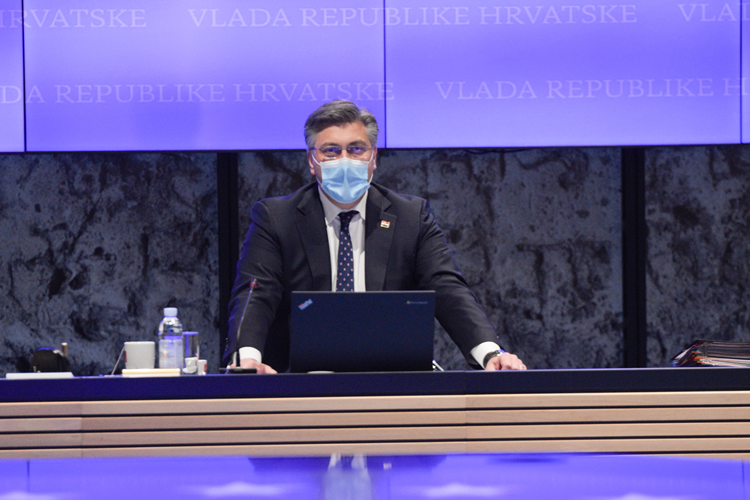


Plenković informed his cabinet that earlier in the day he had talked with the EC President Ursula von der Leyen and that she informed him of the plans about a faster Pfizer COVID vaccine rollout in the second quarter of 2021.
The relevant information will soon be discussed by other relevant bodies.
Plenković called on the Croatians to comply with anti-epidemic measures and to behave responsibly.
He warned that for eight consecutive weeks, Croatia had been registering a rise in the number of confirmed infections with the novel coronavirus and in the number of related deaths.
We are trying to catch up with the inoculation rate and curb the spread of the virus, he added.
Croatia holds local elections on the third Sunday in May every four years.
On 16 May 2021, Croatian citizens will be choosing executive and legislative authorities in 576 local and regional government units - mayors, county prefects and their deputies as well as local councils and county assemblies.
Compared with the elections held four years ago, there will be 568 fewer deputy mayors and about 10 percent fewer members of local councils and county assemblies.
The number of local councils and county assemblies depends on the size of the population of the unit concerned. Units with a population of up to 1,000 will have the fewest representatives (7), while those with a population of 300,000 and over will have the most (47).
The number of deputies also depends on the size of the population of a given unit. Counties with more than 250,000 inhabitants will chose two deputy prefects and cities with more than 100,000 inhabitants will choose two deputy mayors. Counties with a population of less than 250,000 are entitled to one deputy prefect, and cities with a population of between 10,000 and 100,000 and those that also serve as the centre of their county will have one deputy mayor. Towns and municipalities with fewer than 10,000 inhabitants are not entitled to a deputy mayor.
Candidates for mayors and county prefects have to receive more than 50% of votes of the voters who have taken part in the election to be elected outright. If none of the candidates in a given unit obtains the necessary majority, two of the candidates with the largest number of votes go into a second round of voting, which will be held on 30 May.
Unlike presidential or parliamentary elections, in local elections voters can vote only in their place of residence and not elsewhere, either in Croatia or abroad.
The supplement, which will be paid to relieve the consequences caused by the COVID-19 epidemic, will be tax-free and not subject to enforcement collection.
The highest amount will be paid to recipients of the lowest pension allowance, which means that seniors receiving a pension allowance of up to HRK 1,500 will receive a one-off grant of HRK 1,200.
Pensioners with monthly allowances between HRK 1,500 and HRK 2,000 will receive HRK 900 and those with a pension of HRK 2,000 to HRK 3,000 will receive HRK 600, while pensioners with an allowance of HRK 3,000 to HRK 4,000 will receive HRK 400.
The beneficiaries who receive pension allowances only from Croatia can expect this extra payment later this month. The eligible beneficiaries of combied allowances which include pensions from abroad plus allowances from Croatia can expect this grant in July.
Text:HINA